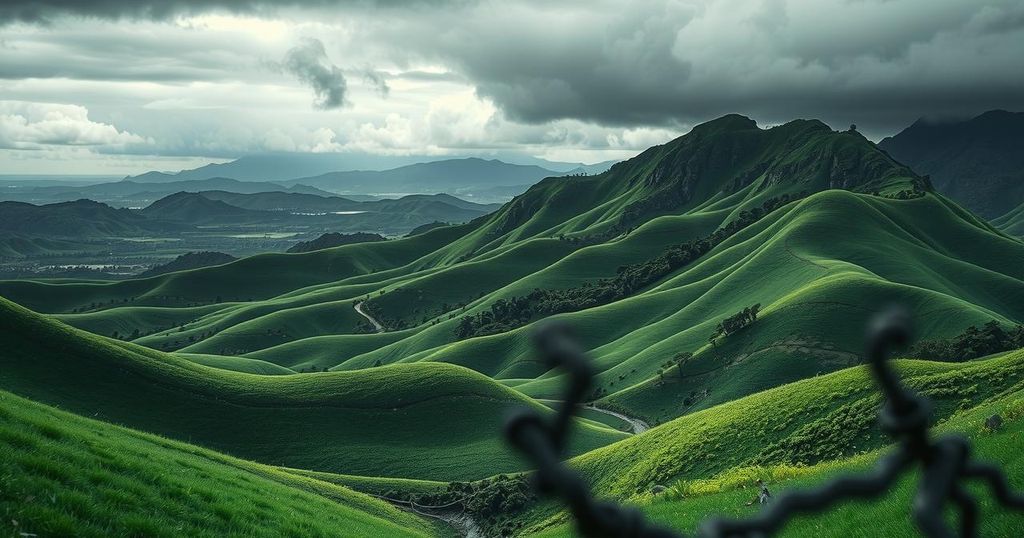Understanding the Ongoing Conflict in Goma, DR Congo

The conflict in the eastern Democratic Republic of Congo has persisted for over 30 years, intensified by the emergence of the M23 rebel group, which claims representation of the Tutsi population. The group has recently advanced into Goma, sparking renewed international concern. The ongoing tensions are complicated by Rwanda’s alleged involvement in supporting the rebels, rooted in the historic context of the Rwandan genocide and continuing ethnic rivalries.
The ongoing conflict in the Democratic Republic of Congo (DRC) has persisted for over three decades, primarily in the mineral-rich eastern region, which has become a battleground for various armed groups vying for control. The roots of this instability can be traced back to the aftermath of the 1994 Rwandan genocide, which led to widespread violence spilling over into DRC. Armed factions continue to exploit the region’s wealth in minerals, leading to ongoing strife since then.
Currently, the M23 rebel group, which claims to represent the interests of the ethnic Tutsi community, has re-emerged, recently entering the city of Goma. This major urban center, with a population exceeding one million, serves as a critical trading post and is in proximity to mineral-rich areas. While the M23 asserts it governs Goma, the Congolese administration contends that government forces maintain control over strategic locations within the city.
The M23 derives its name from a peace agreement signed on March 23, 2009, after prior conflicts. Formed in 2012, the group has garnered attention for its rapid territorial gains, including its seizure of Goma, which attracted international condemnation and allegations of war crimes. While it temporarily retreated from Goma following military defeats assisted by international forces, the M23 rearmed in 2021, citing unmet promises regarding the protection of Tutsis.
Rwanda’s involvement in the DRC war has long been a contentious issue, with the Rwandan government historically denying support for the M23. However, United Nations reports have implicated Rwanda in providing military assistance to the rebels. Recently, Rwandan officials described the fighting near the border as a “serious threat” to their national security, suggesting that the Congolese government is to blame for escalating tensions instead of the M23’s actions.
The conflict’s origin is intricately linked to the Rwandan genocide, which resulted in the deaths of approximately 800,000 Tutsis. In the aftermath, a mass exodus of Hutus to DRC exacerbated ethnic rivalries, foreshadowing future hostilities. The Rwandan army has invaded the DRC in the past to pursue perceived threats, while Hutu militias, including the FDLR, remain active in eastern DRC, intensifying regional instability.
Rwanda views the FDLR as a significant threat and accuses the Congolese government of collaborating with its members, a claim that the DRC denies. The potential for continued Rwandan intervention exists, especially if concerns regarding the FDLR persist, coupled with the competition over eastern DRC’s lucrative mineral resources.
The Democratic Republic of Congo (DRC) has a long-standing history of conflict, particularly in its eastern regions rich in resources. The instability can largely be attributed to the aftermath of the Rwandan genocide in 1994, which displaced a million Hutus into the DRC and incited ethnic animosities. Over the years, various armed groups have emerged, driven by a desire for control over valuable minerals like gold, tin, and coltan, leading to a pattern of violence and civil strife that poses challenges for regional security.
The conflict in eastern DRC, rooted in historical ethnic tensions and competition over mineral wealth, remains unresolved despite previous attempts at peace. The resurgence of the M23 rebel group highlights the fragile state of governance and the influence of neighboring Rwanda, complicating any potential resolution. Consequently, without international intervention and a willingness for dialogue among the conflicting parties, the ongoing violence is likely to persist, further destabilizing the region.
Original Source: www.bbc.com








